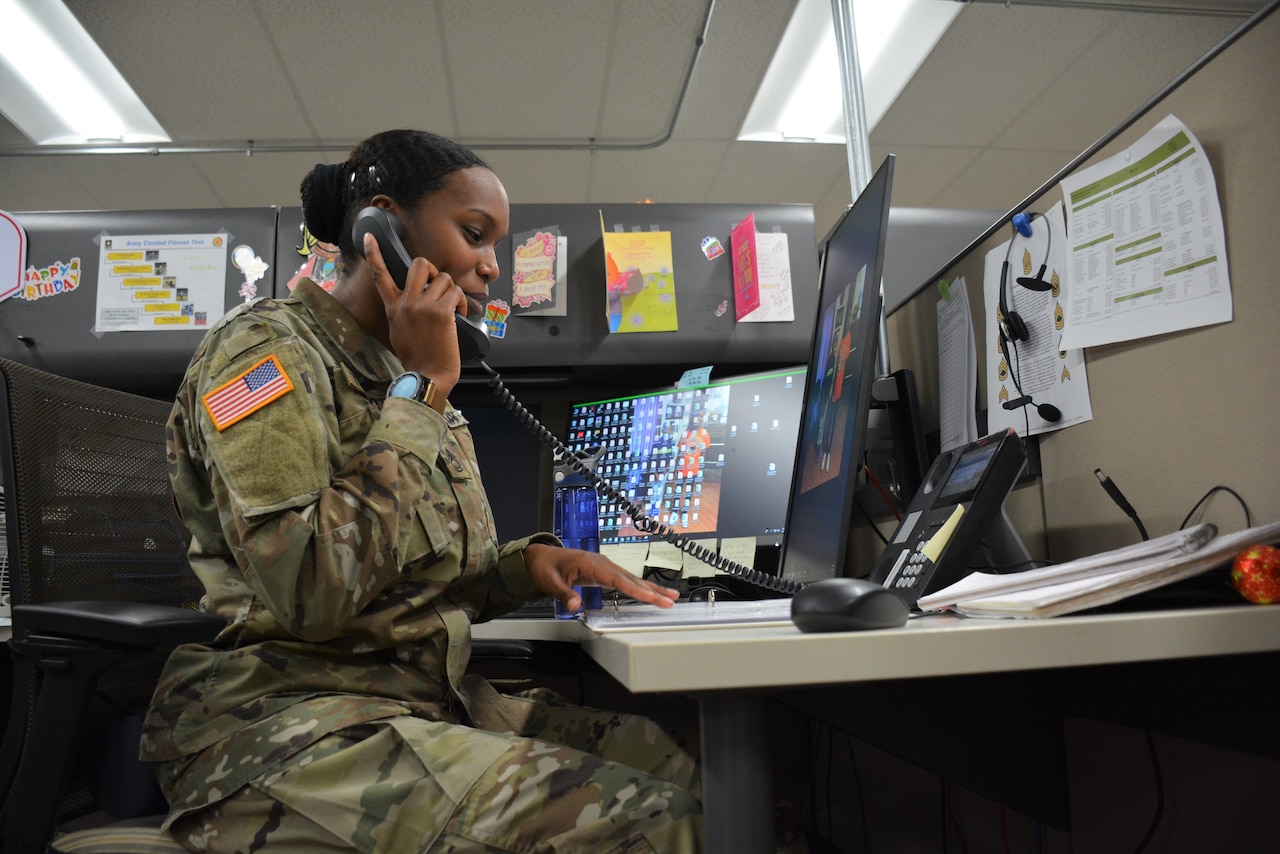April 10, 2020 | BY Thomas Brading , Army News Service
As the COVID-19 pandemic persists, many civilian medical
providers' capabilities are being stretched thin. To help fill this gap, the
Army has deployed its own medical professionals to the field and is now calling
on former soldiers to join the battle.
Last month, the Army reached out to about 800,000 retired
"gray-area" and Individual Ready Reserve soldiers, asking them to
join the response effort.
So far, roughly 25,000 from numerous backgrounds have
volunteered to rejoin the Army team, said Brig. Gen. Twanda E. Young, U.S. Army
Human Resources Command deputy commanding general and reserve personnel
management director at Fort Knox, Ky.
Many nonmedical respondents volunteered through the
command’s website, Young said. Once screened, qualified individuals will
provide additional capabilities to support the COVID-19 pandemic response, she
said.
"This effort seems very simplistic — soldiers volunteer
and we just bring them back on active duty — but it requires a specialized team
of professionals knowledgeable in reserve policy, which the reserve personnel
management directorate provides," Young said.
This is a herculean effort, she added. "We understand
the urgency," she said, "thus, we are working multiple shifts to sift
through screening volunteers to get them at the point of need."
Soldiers who are currently licensed in medical fields are
preferred, but Army officials are encouraging all soldiers to step up in the
fight against COVID-19.
"Army health care providers are heroes in the fight against
COVID-19. Protecting our citizens from the novel coronavirus requires a vital
call to action, and we need the help of many of our retired or recently
separated medical professionals," Army officials stated in a news release.
However, the Army doesn't plan to mobilize veterans
currently in medical jobs, Young said.
"If individuals are already serving in their local
communities, we are proud of their service, and want them to continue serving
in those communities, as this effort is not to detract from current community
support, but to enhance it," she said.
Potential volunteers may include medical students, retired
doctors, or former soldiers not involved in the medical community. Key medical
military occupational specialties needed include critical care nurses, anesthesiologists,
nurse anesthetists, critical care nurses, nurse practitioners, emergency room
nurses and respiratory specialists, Young said. Who is accepted and where they
will go is decided case by case, depending on the Army's needs of the Army, she
added.
Although 25,000 former soldiers have stepped up to the plate
so far, Young said, she expects that number to continue to increase as more
people reach out every day.
"When we talk about someone being a soldier for life, I
don't think you can get any better example than these individuals," she
said. "These soldiers are willing to rejoin the team and continue to
serve."
After HRC receives volunteer requests, officials sift
through and validate initial requests, then sort them by specialty, Young said.
The duration of the orders is open-ended.
"These are individuals who are putting their lives on
hold," Young said. "Even though we want to get them on as quickly as
possible, we have to take into consideration they must get life affairs
straight and give them the necessary time."
After combing through volunteers' credentials, the next step
is matching them to what the Army needs, then getting the volunteers on orders,
Young said.
The vetting process works like a funnel, Young said, and
filters the volunteers into smaller numbers based on their credentials,
requirements, background checks and capabilities. Occasionally, "life
happens," and some qualified volunteers are unable to commit to the Army's
requirements.
The goal is to get volunteers on-board quickly so the Army
can get them to the places where their skills, expertise and knowledge are
needed the most, Young said.
"Requirements are changing for what is needed,"
she said. "When we talk to soldiers and explain that we are looking to
bring them on, we caveat that statement by ensuring they understand this is at
the point of what the Army needs, and acceptance to be recalled is
voluntary."
Individuals who don't volunteer are no less of a soldier for
life, Young said. "Our word is that we will take care of soldiers and make
sure that they and their families are taken care of," the general added.
These soldiers have gone through the gauntlet, she said, and
the Army is proud of their service. They are skilled to operate in some very
uncertain and complex times.
"It makes me proud to be a soldier — not just a general
officer — but a soldier in America's Army, to see the level of commitment and
dedication of those currently serving and those who have served, and their
willingness to rejoin the team," Young said.
Soldiers who are interested should provide their information
using the COVID-19 voluntary recall survey on the HRC website.

No comments:
Post a Comment